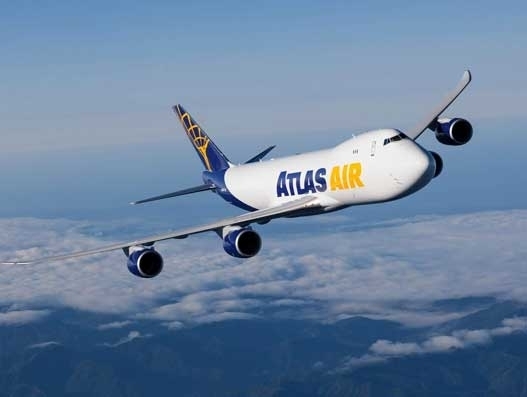
Trade uncertainty impacts Atlas Air's Q3 results
Oct 31, 2019: Aircraft lessor Atlas Air Worldwide Holdings (AAWW) has reported income of $60 million for the first three quarters of 2019, compared to $71.1 million, during the same period in 2018. The company cites reasons such as ongoing tariff and trade tensions, uncertain global macroenvironment, lower cargo yields and volumes, labor-related service disruptions, […]

Oct 31, 2019: Aircraft lessor Atlas Air Worldwide Holdings (AAWW) has reported income of $60 million for the first three quarters of 2019, compared to $71.1 million, during the same period in 2018.
The company cites reasons such as ongoing tariff and trade tensions, uncertain global macroenvironment, lower cargo yields and volumes, labor-related service disruptions, for the third-quarter results.
The company’s EBITDA (earnings before interest, taxes, depreciation, and amortization) totalled at $95.6 million, compared with $123.9 million in the third quarter of 2018.
There was a slight increase reported in the ACMI segment revenue during the period.
ACMI segment revenue was impacted by growth of smaller-gauge 767, 737 CMI flying and two-month redeployment of two 747-8F aircraft to the Charter segment prior to their subsequent placement with an ACMI customer.
In addition, segment contribution was impacted by start-up costs for customer-growth initiatives and higher crew costs, including enhanced wages and work rules resulting from our interim agreement with pilots at Southern Air.
Charter segment revenue increased during the period reflecting higher levels of flying, partially offset by a decrease in the average rate per block hour due to the impact of tariffs and global trade tensions on commercial cargo yields (excluding fuel).
These drivers were partially offset by lower cargo demand from commercial customers as well as labor-related service disruptions.
Lower Charter segment contribution was primarily driven by a decrease in commercial cargo yields related to the impact of tariffs and global trade tensions and labor-related service disruptions. These items were partially offset by earnings from the two-month deployment of two 747-8F aircraft from the ACMI segment; an increase in military passenger flying; and lower heavy maintenance expense.
In Dry Leasing, lower segment revenue and contribution during the quarter primarily reflected the scheduled return of a 777-200 freighter, partially offset by the placement of additional aircraft.
In the third quarter of 2019, the company incurred a special charge primarily due to an impairment loss for four aircraft engines to be disposed of and the permanent parking of two 737-400 passenger aircraft used for training purposes.
William J Flynn, chairman and chief executive officer said: “Looking to the full year, we expect revenue of about $2.75 billion, adjusted EBITDA of approximately $500 million, and adjusted net income of approximately 60-65 percent of our 2018 adjusted net income.*”
“We expect to benefit from peak-season volumes and yields, including the seasonal flying we do for express and e-commerce customers. In addition, our outlook anticipates increased passenger flying for the military and lower maintenance expense compared with the fourth quarter of 2018, as well as from a refund of aircraft rent paid in previous years.”
He concluded: “Airfreight is a long-term growth industry. Despite current macroeconomic issues, the global middle class continues to expand and supply chains continue to grow and develop to meet demand. And as consumption increases and supply chains evolve, airfreight is vital in transporting the goods and materials required by consumers safely, reliably, and efficiently. With the scale and scope of our operations, and our strategic focus on express, e-commerce and faster-growing markets, we are positioned well to serve the demand for airfreight today and in the future.”
John W Dietrich, president and chief operating officer, highlighted that the company is taking steps to navigate through the current headwinds.
One of the major steps taken is balancing capacity with the demand for its aircraft and services. Also, it is focusing on reducing costs, enhancing productivity, improving profitability, and generating cash.
These actions, according to the company, will not only benefit Atlas in the near term, but will also contribute to the long-term success of the company.

